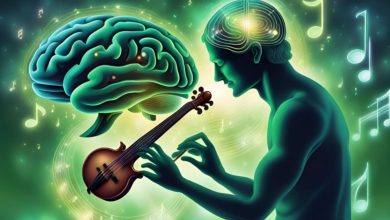Does Stress Whiten Hair?

Does Stress Whiten Hair?
Everyone is looking for ways to look younger and more dynamic. Especially today, with social media being so central to our lives and the perception of beauty being overemphasized. Well, we always hear “Stress makes our hair turn white.“ Is this claim a myth or fact? Let’s examine it!
A World Full of Stress
Stress is a trigger that we are all exposed to in our daily life, it surrounds us and reduces our quality of life with the rush to catch up with life in cities. This trigger, when the dose is adjusted, can provide motivation for a person’s work, and when the dose is increased, it can make a person’s life difficult and unproductive. So much so that we can observe how stress affects our lives, when we look at the relationship between stress and the “Covid-19 Pandemic” that we faced.
The Enemy of Our Immune System: Stress
According to a study conducted at the University of Manchester, the more stressed a person’s body is under, the slower the rate at which it can produce antibodies! During this research, individuals were divided into two groups. While the first group consisted of individuals who led a more regular and enjoyable life, fed regularly, and had a well-established sleep pattern, the second group consisted of individuals with high-stress levels and no sleep and meal routines. It was determined that the antibody level of the group, which led a more regular life and had a lower stress level, increased up to 56% (NTV, 2021). While this is the case, putting a stress load on ourselves reduces our quality of life and efficiency, therefore it is negatively affecting our health.

In fact, its effects on our health are not only limited by the speed of antibody production but also affect our psychology more seriously. Although we are aware of this situation, we can reach the awareness of reducing stress levels as much as we can, with the awareness that a completely stress-free life is not possible. Nature walks, meditation, yoga, putting thoughts on paper, coffee chats with our loved ones, and smiling a lot can come to mind to achieve this goal in this journey. You can also read our article “Ikigai: The Reason That Gets Us Out of Bed in the Morning“, which provides information on a method that can help reduce such stress levels and wake us up in the morning.
Hair that is the subject of fairy tales
As children, we all love to listen to fairy tales. While these tales develop our imagination, they also have serious reflections on our personalities. Therefore, in the fairy tales told to children, attention should be paid to the character traits and the flow of events, and false impressions should not be presented to the children whose character is just being established. Do you remember the tale of Rapunzel? A princess imprisoned in the tower; long, well-groomed, and very bushy hair…
In princess tales, the hair of the princesses is always very well-groomed and lively. Perhaps our hair, which is believed to have an important place in our appearance, has come to be assumed as the complement of our face. Of course, we should care about the health of our hair, which is the mirror of the person’s care and cleanliness, but I did not want to continue without reminding that the most important thing is the smile on the face of the person, which is also the best part of the external appearance and reveals the light of the person.

Returning to our subject, the effect of genetic and structural factors is undeniable for the whitening of hair, as it can be associated with aging. Although mostly aging is associated with graying of hair, this may vary. Even the gender difference can affect the age of graying hair. For example; It was understood that while the white strands of hair began to be observed around the age of 30 in men, it appeared around the age of 35 in women. However, let’s remember that there are always exceptions, and let’s add that in some people, graying of hair can start in high school years, while in some people it can even reach the age of 50!
So How Does Graying Begin?
The graying of the hair starts in the hair follicles located in our skull. In a healthy person, there are about 100,000 of these pits, and at the bottom of these follicles, the cells that give the hair its color join together. Keratisonides (known as keratin), which are colorless proteins, replace the lost hair and give the hair its strength. Melanins, on the other hand, contain the pigments that produce colors. These color pigments give the hair its color. Therefore, when the hair loses its Melanin, it begins to turn gray.

Is There Really a Relationship Between Graying Hair and Stress?
When the studies on this subject are examined, it can be learned that a common decision has not been reached yet. According to David Fisher’s explanations (Professor at Harvard University), many variables play a role in the graying process and we cannot talk about a certainty like stress and graying alone. On the other hand, hypotheses claiming the opposite are also present in the literature. Ralf Paus, professor of dermatology at the Schleswig-Holstein University Hospital in Germany, explains the hair-graying process and says that stress hormones can accelerate the whitening process by accelerating the production of destructive unstable molecules in the cell and by addressing its relationship with melanin production (Bilimfili, 2015).
Marie Antoinette Syndrome
This syndrome, which expresses the situation in which a person’s hair suddenly turns white, or rather, the pigments decrease and produce a color close to gray, takes its name from the French Queen Maria Antonia Josepha Johanna who lived in the 1700s. It is claimed that the queen’s hair turned white on the evening of the day she received the news that she was sentenced to death due to the French Revolution. How is this situation possible, is this the true extent of the event? Although the answers to these questions cannot be given with full accuracy, this is how the name of the syndrome was given.

An interesting experiment: Are mice stressed too?
Although mouse experiments are an ethically problematic issue, unfortunately, we still see such experiments today. In one of these experiments, it was revealed that when mice were exposed to stress, their hair turned white.
As a result, there is no clear answer to this question from the scientific world yet. The hypothesis that stress accelerates graying of hair is strengthened by observations, and by the experiments carried out. New research is shared on this subject every day. Although we have not established enough cause-effect connections on the subject and reached no certainty, the relationship between stress and skull pigments mentioned in our article has been explained by research. Let’s hope that our hair can accompany us with health on the days when stress is present in our lives without tiring us, only by motivating us and giving us excitement.
References and Further Reading
Akcay, G. (2015). Stress Makes Hair White: Fact or Myth?. sci-fi. https://bilimfili.com/gercek-mi-efsane-mi-stres-saclari-beyazlatir
First, B. (2020). Marie Antoinette Syndrome. https://ekog.org/2020/05/02/marie-antoinette-syndrome/
NTV.(2020). Stress causes hair to turn gray. https://www.ntv.com.tr/dunya/uzmanlar-arastirdi-stress-antikor-dusmani,OdLWnlMjHUibd6VCZ6YlLQ
YouTube. (2020). Scientists Explain Why Stress Turns Hair White. https://www.youtube.com/watch?v=2LtGOWOsTHA
Images not cited are used through Canva Pro with a royalty payment.
The proofreading has been done by Asu Pelin Akköse and Mete Esencan.
Would you like to support us?
- For more detailed information, you can check our “Support Us!” page!







